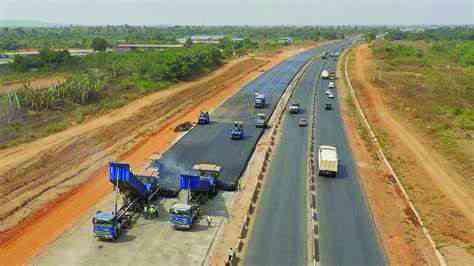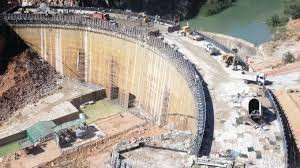
A SILENT but brutal jobs massacre is sweeping through Zimbabwe’s construction sector, as companies contracted by government for critical infrastructure projects plunge into financial crisis amid massive delays in payment, the Zimbabwe Independent can reveal.
A trade union said Thursday operators may have offloaded 500 workers since March.
This follows last week’s exclusive by the Independent uncovering how contractors are reeling under debts for work completed as far back as January 2024. A deadly mix of a deep liquidity crunch and ambitious state projects far beyond government’s fiscal reach has pushed several firms to the edge — triggering layoffs, asset seizures, and lawsuits.
The worst-hit include contractors involved in flagship projects such as the 584-kilometre Harare–Masvingo–Beitbridge Highway, where creditors are closing in, and momentum has been affected.
The crisis hit fever pitch last Thursday when desperate contractors, attending a funeral wake for a fellow supplier in Harare, turned their grief into action. Distraught executives agreed to confront the Ministries of Finance and Justice to demand immediate intervention.
This week, the Independent was told as government delays mount, the country’s construction workforce is paying the heaviest price.
Zimbabwe Construction and Allied Trade Workers Union (ZCATWU) secretary-general Muchapiwa Mazarura confirmed widespread job losses.
“There have been significant retrenchments, and we are still compiling the actual numbers,” he said.
- Govt revives stalled Binga-Karoi Road project
- Govt demands timeous returns on rehab funds
- Bus route wars: Government engages operators
- Govt takes 5 years constructing 200-metre Matobo Bridge
Keep Reading
“For the past one year, we have been experiencing difficulties negotiating salaries and wages for the construction sector. Most of the times when we go for negotiations, the response we get from employers is that government is failing to pay contractors but we are aware that we have some contractors who are not contracted by government and they are just not paying or increasing wages, citing late payments by government,” he said.
“We are receiving letters from employers to National Employment Council (NEC) requesting to be exempted from adhering to Statutory Instrument (SI) 45 of 2013. This SI gives the right to employers and employees to waiver. The SI is very clear on the requirement of waiver.
“We are aware of contractors hiding behind government arrears when they are not even involved in public projects,” he said.
The unfolding crisis has exposed deep fault lines in Zimbabwe’s infrastructure revival agenda.
Tinashe Manzungu, president of the Zimbabwe Building Contractors Association (ZBCA), painted a bleak picture during a recent interview with the Independent.
“Some of our members are owed huge sums — invoices dating back to early 2024,” he said. “Companies have shut down. Some owners have lost their homes.
He said Treasury’s silence had only worsened tensions, with contractors now going up to eight months without payment even as the cost of materials and labour rises sharply.
“There is a perception that doing government work means guaranteed pay,” one executive said. “But that is a myth. Treasury is overwhelmed — we understand that — but partial payments could have saved many firms.”
Government insiders told the Independent that Treasury is struggling under the weight of a ballooning wage bill, growing debt obligations, and sluggish revenue inflows. But contractors argue that poor planning is the real cause.
“Projects are being rolled out without secured financing,” said Manzungu. “Even when a project is budgeted for, Treasury only covers 30% to 40% of the cost,” he said recently.
The ZBCA boss said the state must adopt alternative financing models such as public-private partnerships and land-for-debt swaps.
Several firms recently told the Independent they are now open to receiving land as partial compensation. With public debt now exceeding US$21 billion — and Finance Minister Mthuli Ncube admitting to “cash constraints”— many fear the fallout could be catastrophic.
“The danger is real,” one contractor warned. “If these firms collapse, it is not just the infrastructure that we lose — it is skills, jobs, and capacity. Rebuilding will take years.”
Efforts to obtain official comments over the delays have been unsuccessful. Weeks ago, Deputy Transport Minister Joshua Sacco referred all inquiries to the Ministry of Finance. Finance Secretary George Guvamatanga who has not responded to calls or messages.
Some firms say they had restrategised and moved to regional economies to compete for public and private sector tenders, as the situation deteriorates in Zimbabwe.
As the impasse drags on, one thing is clear: without urgent fiscal reprioritisation and transparency in payments, Zimbabwe’s infrastructure drive risks becoming a graveyard of unfinished dreams — and thousands more jobs may be buried next.






